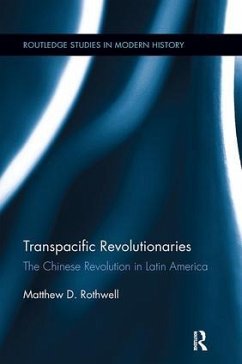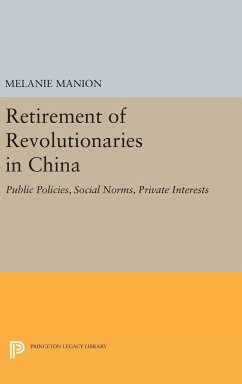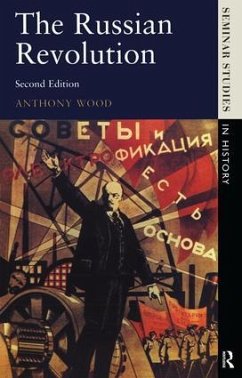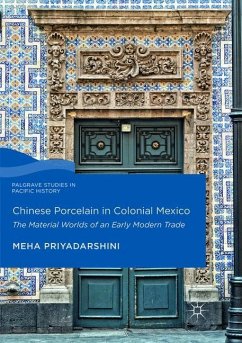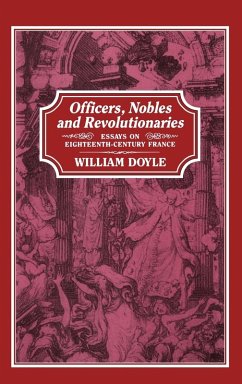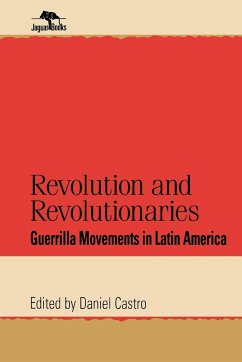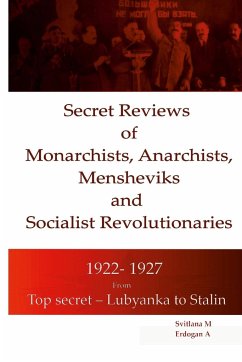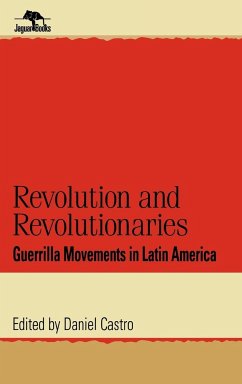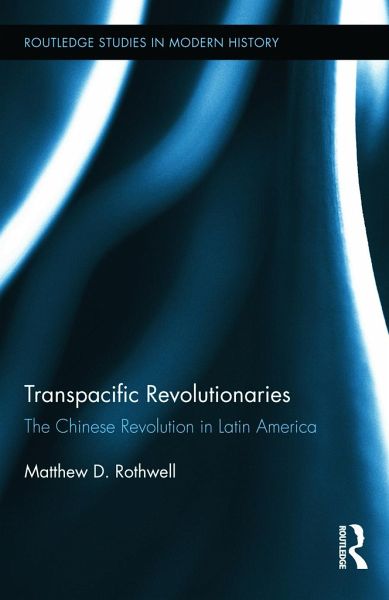
Transpacific Revolutionaries
The Chinese Revolution in Latin America
Versandkostenfrei!
Versandfertig in 1-2 Wochen
189,99 €
inkl. MwSt.
Weitere Ausgaben:

PAYBACK Punkte
95 °P sammeln!
This book shows how Maoism was globalized during the 1949-1976 period, highlighting the agency of both Latin American and Chinese actors. While Maoism has long been known to have been influential in many social movements and guerrilla groups in Latin America, author Matthew Rothwell is the first to establish the way in which Latin American communists domesticated Maoism to Latin American conditions and turned Maoism into an influential political trend in many countries. By utilizing case studies of the formation of Maoist guerrilla groups and political parties in Mexico, Peru and Bolivia, the ...
This book shows how Maoism was globalized during the 1949-1976 period, highlighting the agency of both Latin American and Chinese actors. While Maoism has long been known to have been influential in many social movements and guerrilla groups in Latin America, author Matthew Rothwell is the first to establish the way in which Latin American communists domesticated Maoism to Latin American conditions and turned Maoism into an influential political trend in many countries. By utilizing case studies of the formation of Maoist guerrilla groups and political parties in Mexico, Peru and Bolivia, the book shows how the movement of Chinese communist ideas to Latin America was the product of a highly organized effort that involved formal connections between Latin American activists and the People's Republic of China. It represents a major contribution to three developing fields of historical inquiry: Latin America in the Cold War, the global 1960s, and Chinese Maoist foreign relations.




